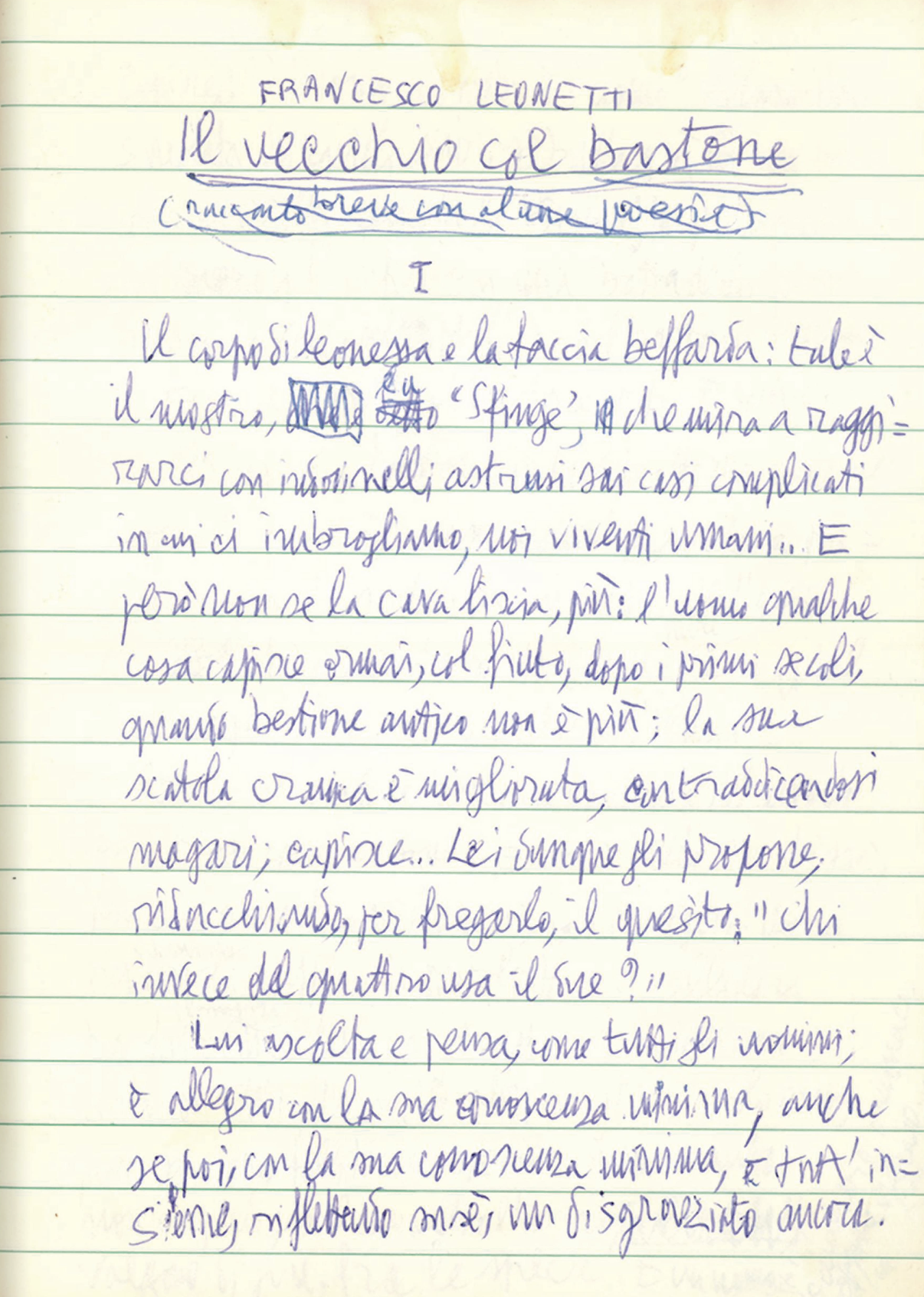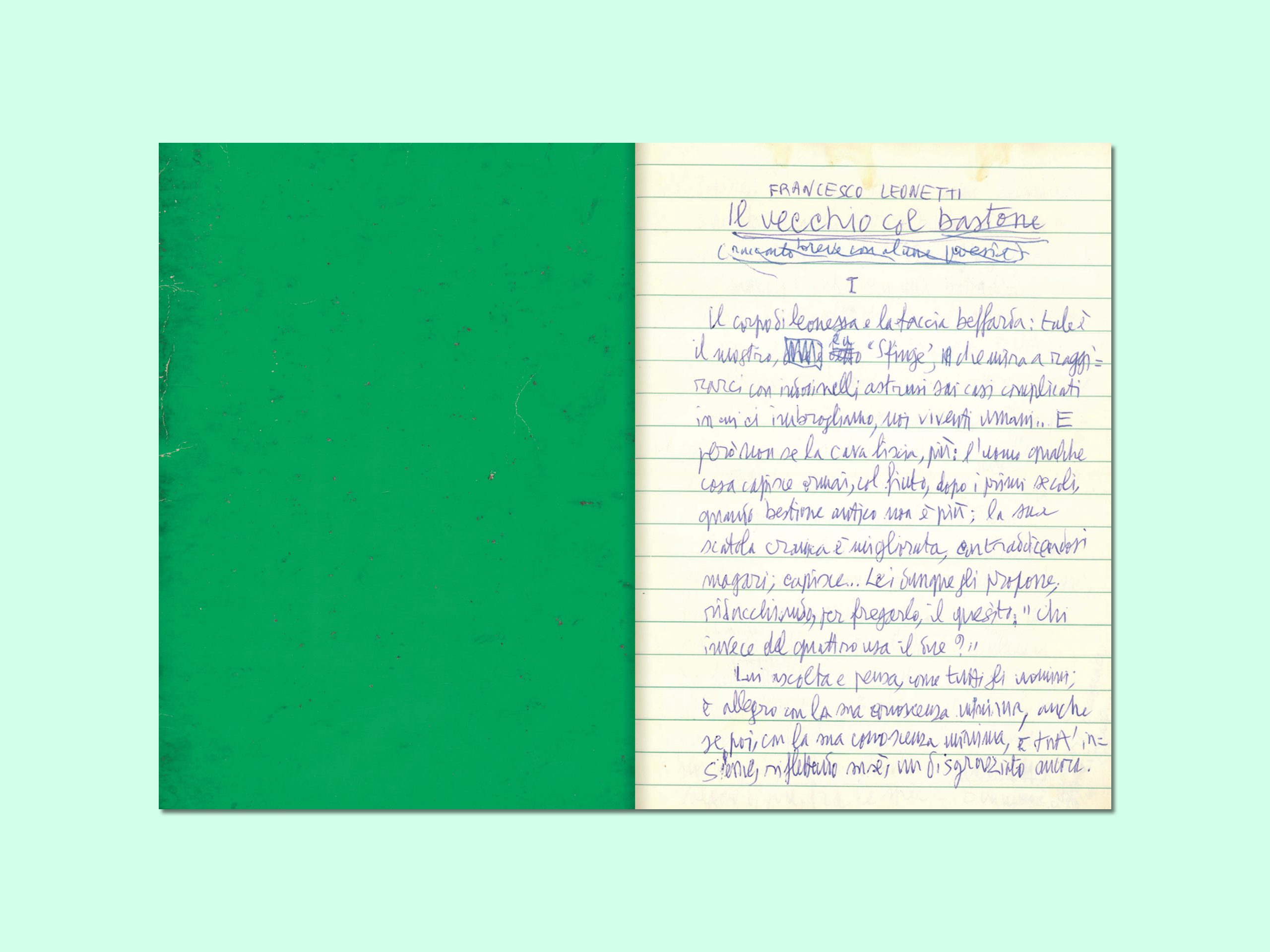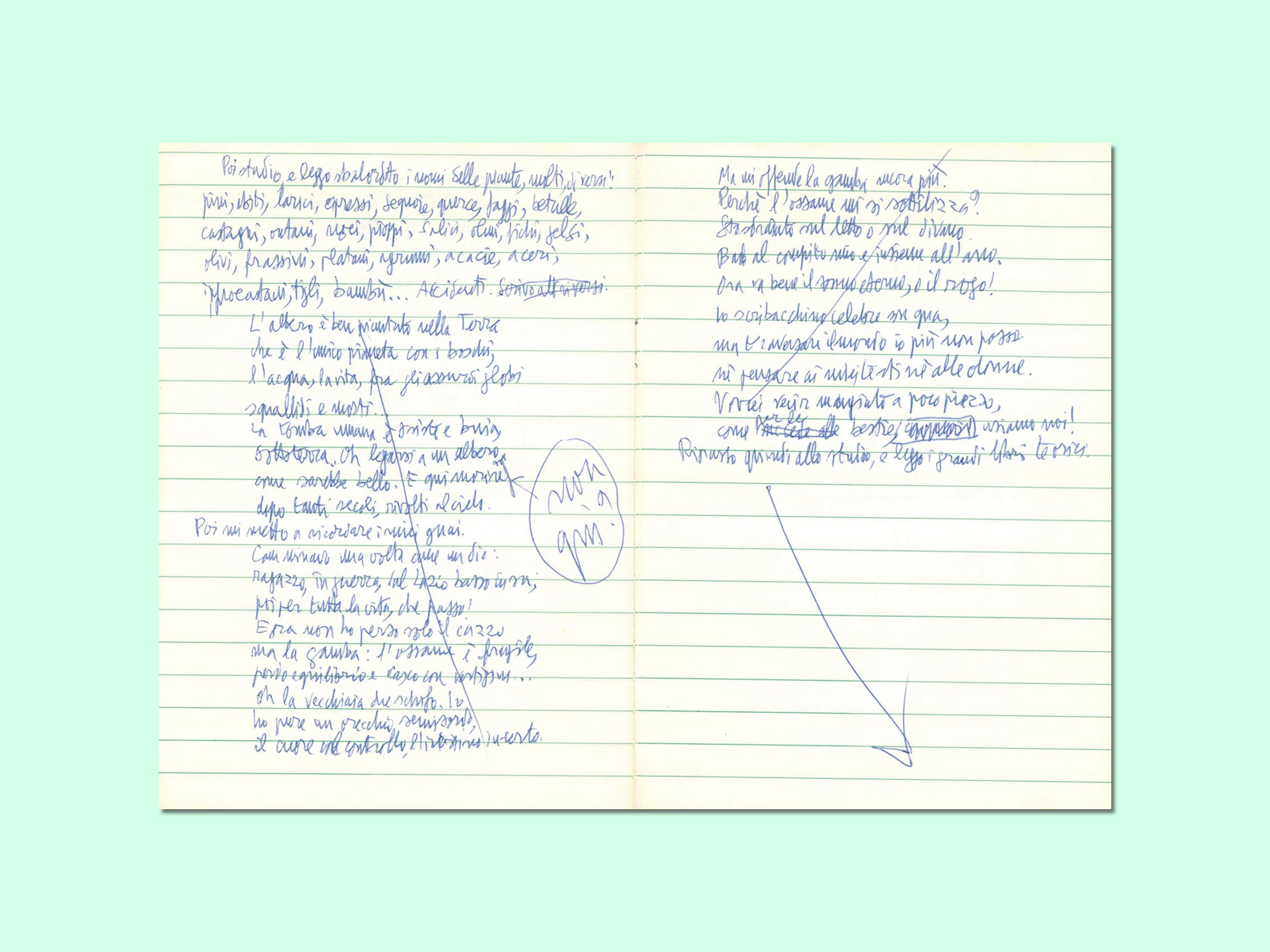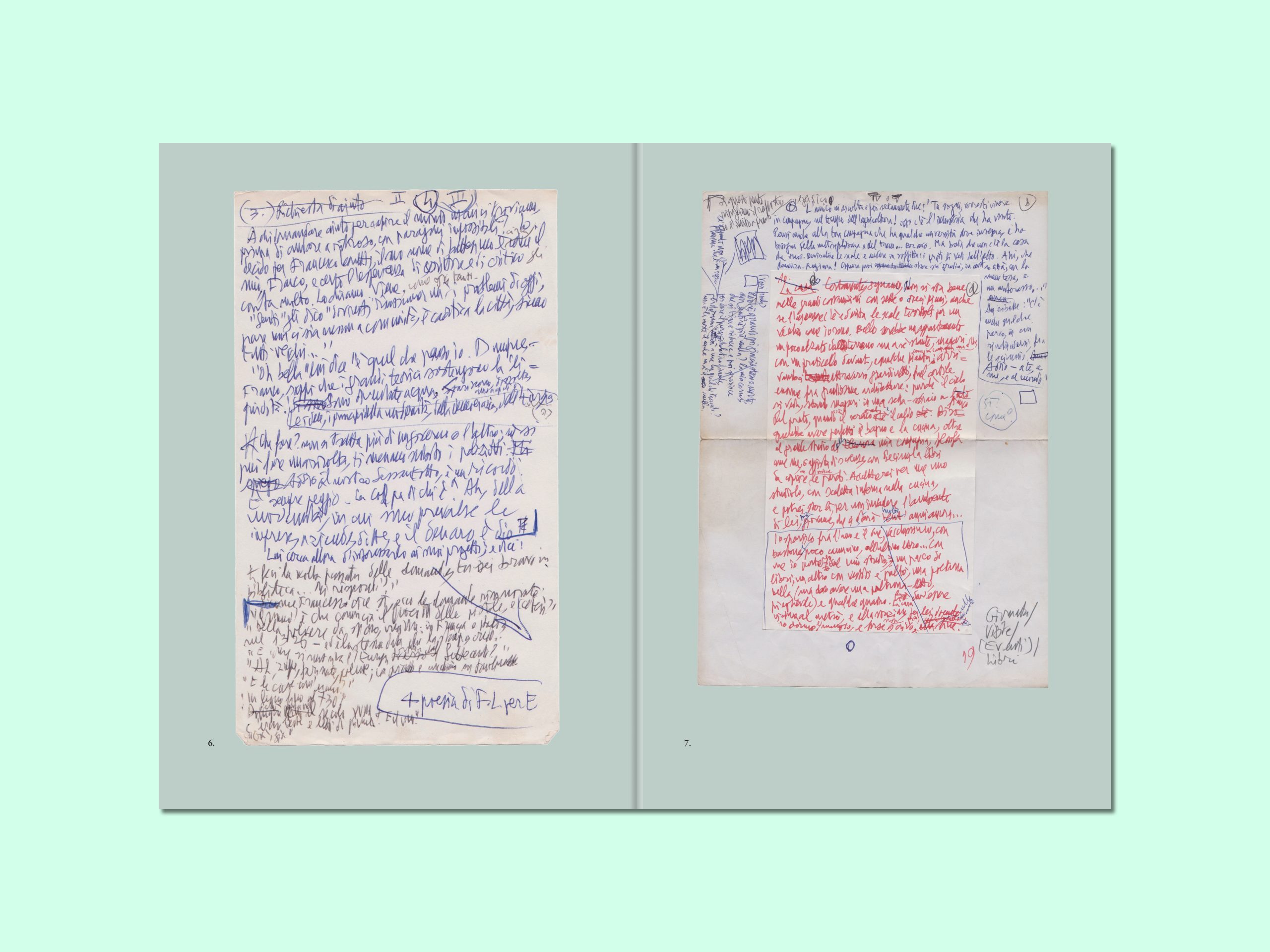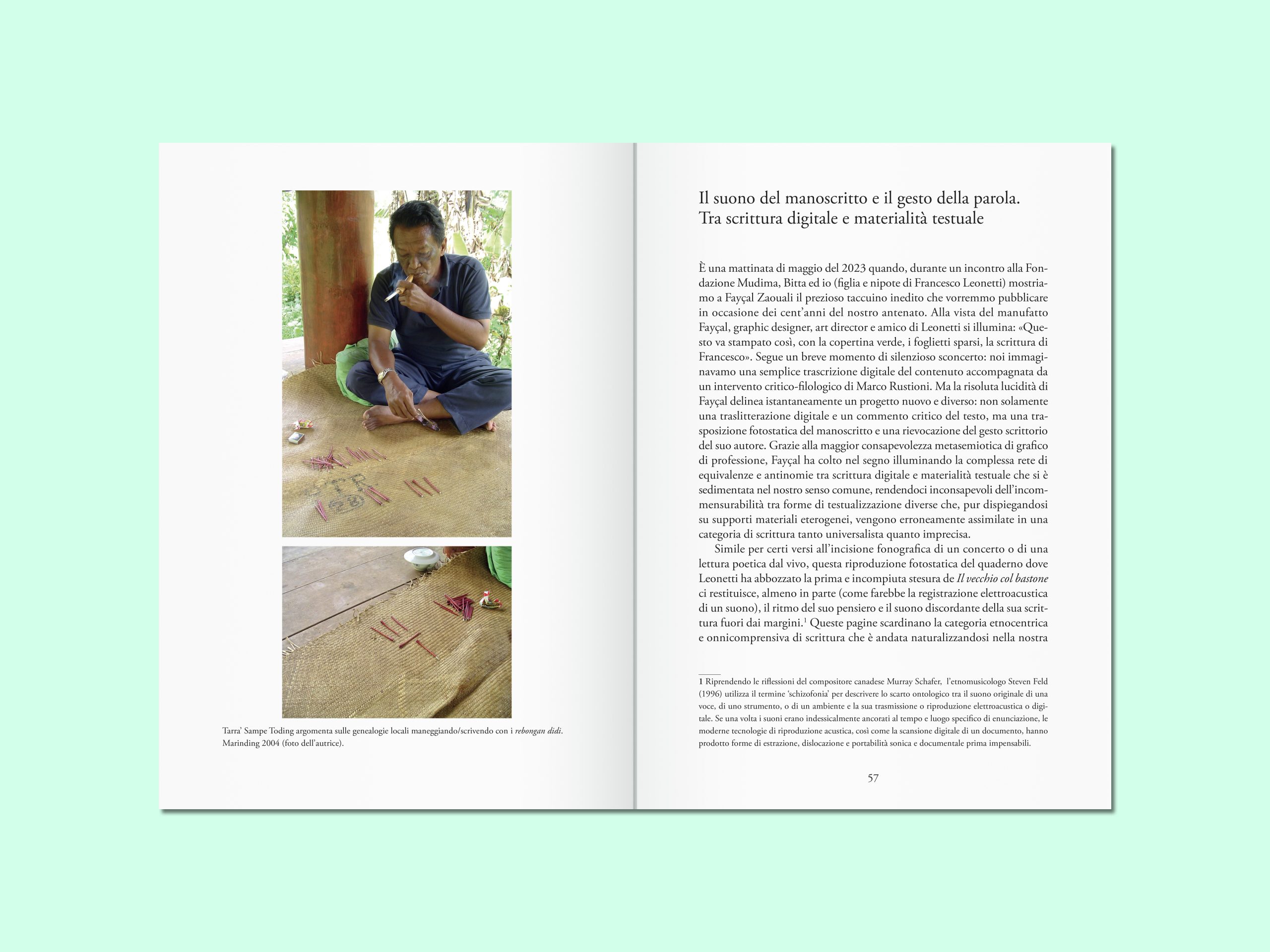Francesco Leonetti
Il vecchio col bastone
edited by Marco Rustioni
afterword by Aurora Donzelli
Fondazione Arnaldo Pomodoro has decided to promote some of the initiatives that will take place during 2024 to celebrate the centenary of the birth of Francesco Leonetti (Cosenza 1924 – Milan 2017), starting with the publication of the unpublished manuscript Il vecchio col bastone, precious testimony to the tireless ferment that has always characterized Leonetti's creativity, right up until his last season.
Francesco Leonetti and Arnaldo Pomodoro met for the first time in Milan in 1963. Leonetti had just moved from Bologna at the invitation of Elio Vittorini to start «Gulliver», an international magazine that would involve figures of the caliber of Italo Calvino and Roland Barthes. The project never saw the light of day, but in the meantime a job at Garzanti had allowed him to start putting down roots in the city. That same year, Pomodoro created his first Sfera, and won the International Prize for Sculpture at the 7th Biennial of Sao Paulo, Brazil, which would definitively launch him into the limelight on the international art scene.
Pomodoro and Leonetti are almost the same age and are engaged in an expressive research that is similar in many ways, in which what counts is the polyphony of languages and the experimentalism based on the dialectical relationship between continuity with the past and innovative break. The two immediately formed a deep friendship, a partnership that would not stop until Leonetti's death in 2017. How many public manifestations of their relationship, expressed not only on a personal level, but also in form of collaboration and intellectual exchange? It runs from the creation of the avant-garde magazine «Che fare» (1967-1972) to the making of films Shaping Negation (1970, with Ugo Mulas) and Processo Politico (1971), passing through works by Pomodoro which bear Leonetti's verses (such as the Immagini from 1974, or Segni e versi from 2007), reaching the book L'arte lunga, co-written and published for Feltrinelli in 1992. But the more numerous the hours and days of discussion and common work that have animated Pomodoro's studio for years, to clarify the profound reasons for a work, to develop a statement, to evaluate the implications of a project!
Leonetti was, in an intrinsic and discreet way, one of Pomodoro's most important collaborators: with the publication of this book the Foundation intends to celebrate his memory.


